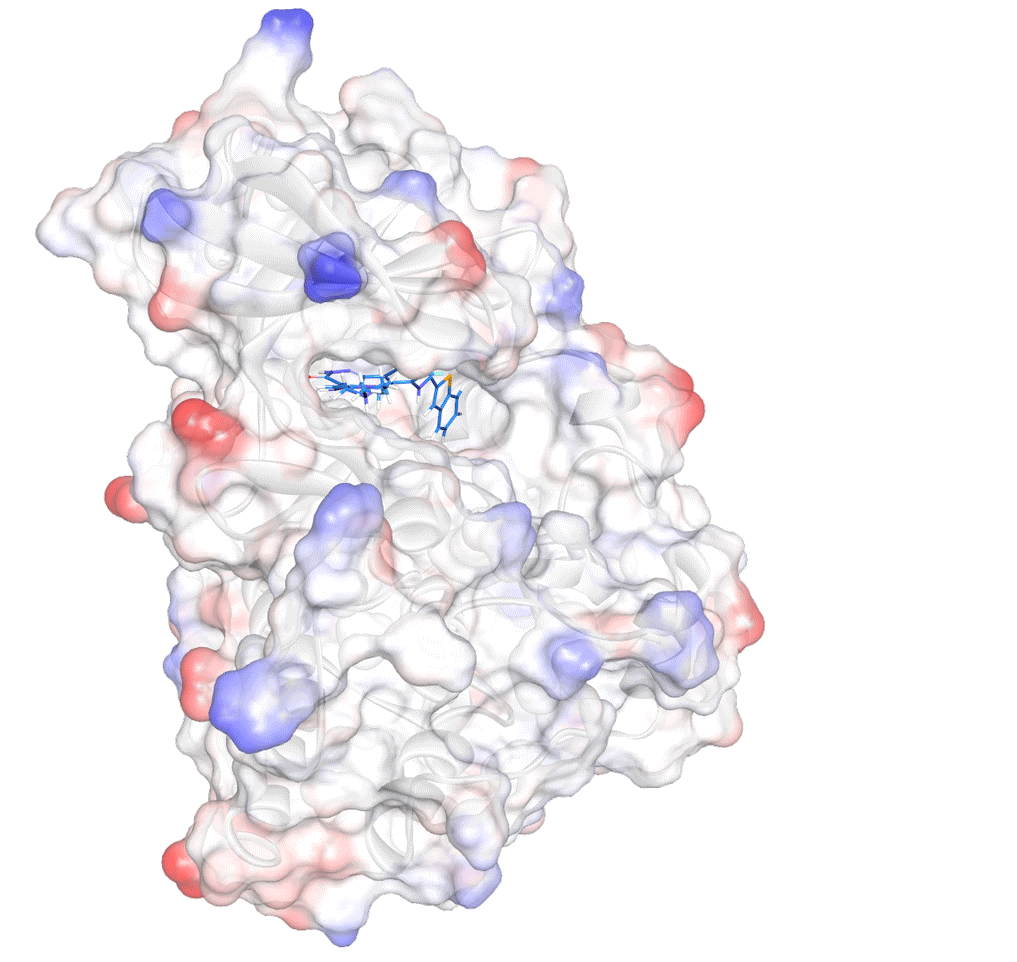Science with purpose.
From design to clinic delivering targeted therapies that matter. Explore our research and breakthroughs.


EGFR
NSCLC
HER2 Positive
Solid Tumor
VRN10 is an orally bioavailable, HER2-selective targeted therapy currently in Phase 1a
clinical trial. It demonstrates potent activity against a range of HER2 mutations as well as
cancers driven by HER2 amplification and overexpression.
Due to its high selectivity, VRN10 demonstrates excellent efficacy while maintaining a
favorable safety profile.
We observed antitumor activity of VRN10 in HER2-positive solid tumors starting from the
initial Phase 1a dose of 80 mg. In a patient with pancreatic cancer (HER2 S310F mutation),
the tumor shrank by 26.7% after only three weeks of treatment. In a patient with gastric
cancer (HER2 IHC 2+/DISH-), rapid tumor growth was halted after four weeks, resulting in
stable disease.
At the second dose level of 160 mg, a patient with lung cancer (HER2 S310Y) who had
metastases to the breast and liver achieved a complete disappearance of the lung lesion
and a 28.6% reduction in the metastatic breast and liver tumors after six weeks of
treatment. Similarly, a patient with breast cancer (HER2 V777L) experienced a 24.2%
reduction in two metastatic liver lesions.
Despite its remarkable efficacy, no serious adverse events have been observed to date.
The Phase 1a clinical trial is ongoing in patients with various HER2-positive solid tumors
who have no remaining treatment options. Among the two patients who showed tumor
responses at 160 mg, one had previously received seven and the other five different
anticancer regimens. Their most recent prior treatment before entering the trial was Enhertu
(T-DXd).
We have established cancer cell models resistant to Enhertu (T-DXd) and confirmed the
efficacy of VRN-10 through both in vitro and in vivo studies.
Because breast cancer has a high incidence of brain metastases, there remains a
significant unmet medical need for agents that can effectively penetrate the blood–brain
barrier (BBB). VRN-10 demonstrates high BBB permeability, and in preclinical brain
metastasis models, it showed superior antitumor efficacy compared with Tucatinib,
Neratinib, Zongertinib, Perzebertinib (ZN-A-1041), Trastuzumab, and Enhertu.
VRN10 has been developed with the goal of overcoming the various limitations of existing
HER2-targeted therapies, aiming to achieve both exceptional efficacy and a favorable
safety profile. Its therapeutic value will be further validated through ongoing and future
clinical studies.
For more details, please refer to the poster below.
PKMYT1
Solid Tumor
VRN16 is a novel selective orally available investigational drug that targets cancer cell’s vulnerability through a synthetic lethality mechanism including CCNE1-driven cancers.
CCNE1 amplification is found in approximately 8% of all solid tumors and is particularly prevalent in over 30% of ovarian and uterine cancers, 14% of gastric cancers, and 8% of breast cancers. Despite its role as a key oncogenic driver, no targeted therapies have been approved to date and remain an unmet medical need.
VRN16 is differentiated with markedly improved selectivity, tolerability, and anti-tumor activity in preclinical studies. With its differentiated profile, VRN16 may become a promising solution to patients with CCNE1-driven cancers.
New indications are explored based on novel biomarkers specific to PKMYT1 inhibition.
USP1
Gynecologic cancer
Solid Tumor
VRN19 is a best-in-class orally available USP1 inhibitor that leverages the mechanism of synthetic lethality to selectively target BRCA1/2 mutated cancers, including ovarian and breast cancers, as well as other solid tumors.
Unlike competing USP1 inhibitors, which have shown limitations in tolerability and efficacy due to hematologic toxicity (e.g., anemia) and hepatotoxicity, VRN19 demonstrates excellent tolerability and potent antitumor activity, offering a broad therapeutic window.
In addition to its current indications, biomarker research is also underway to explore potential expansion into new therapeutic areas.
PDGFR
Pulmonary arterial Hypertension
Direct delivery to the lungs is anticipated to reduce systemic exposure and provide superior safety and efficacy over current therapies.
PAH is a rare disease characterized by abnormal elevation of pulmonary arterial pressure due to vascular remodeling in the pulmonary vasculature and no curative therapies are available to date. Among various pathological pathways, the PDGFR signaling pathway is well known as a key player in vascular remodeling and has emerged as a promising therapeutic target.
Imatinib(Gleevec), a known PDGFR inhibitor, demonstrated meaningful clinical efficacy in the Phase 3 IMPRES trial. However, its systemic administration led to neurological adverse events, which ultimately led to the discontinuation of its clinical development.
To overcome these limitations, VRN13 has been designed as an inhalation therapy that enables localized drug exposure to the pulmonary vasculature. Also, high selectivity for PDGFR and low inhibitory activity against VEGFR-2 (minimizing vascular-related side effects), contributes to an improved safety profile.
With its differentiated mechanism and targeted delivery, VRN13 has the potential to emerge as a globally competitive and best-in-class therapy for PAH.

From design to clinic delivering targeted therapies that matter. Explore our research and breakthroughs.